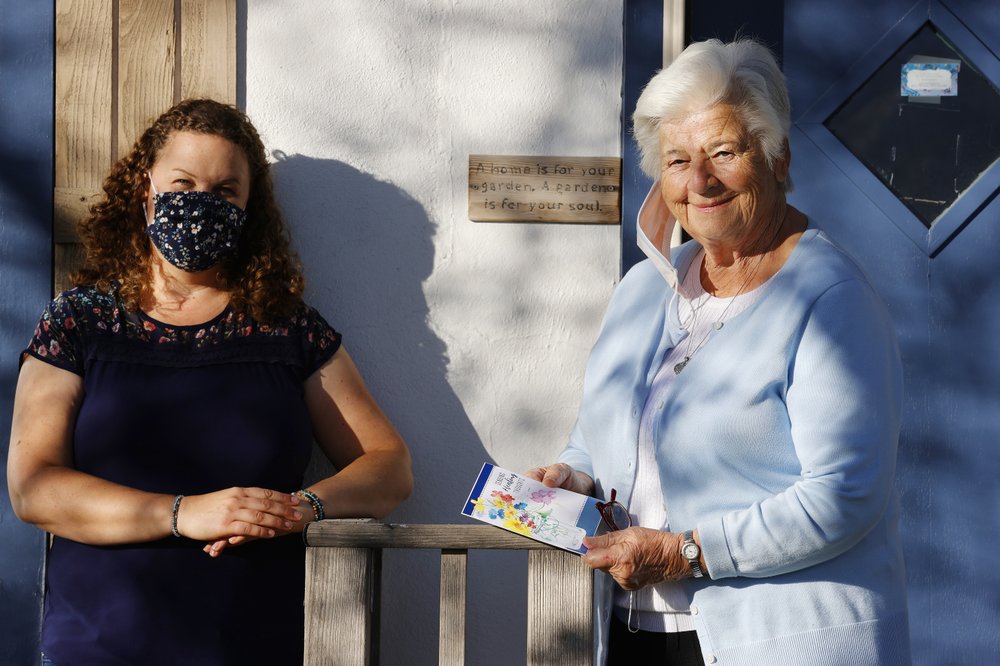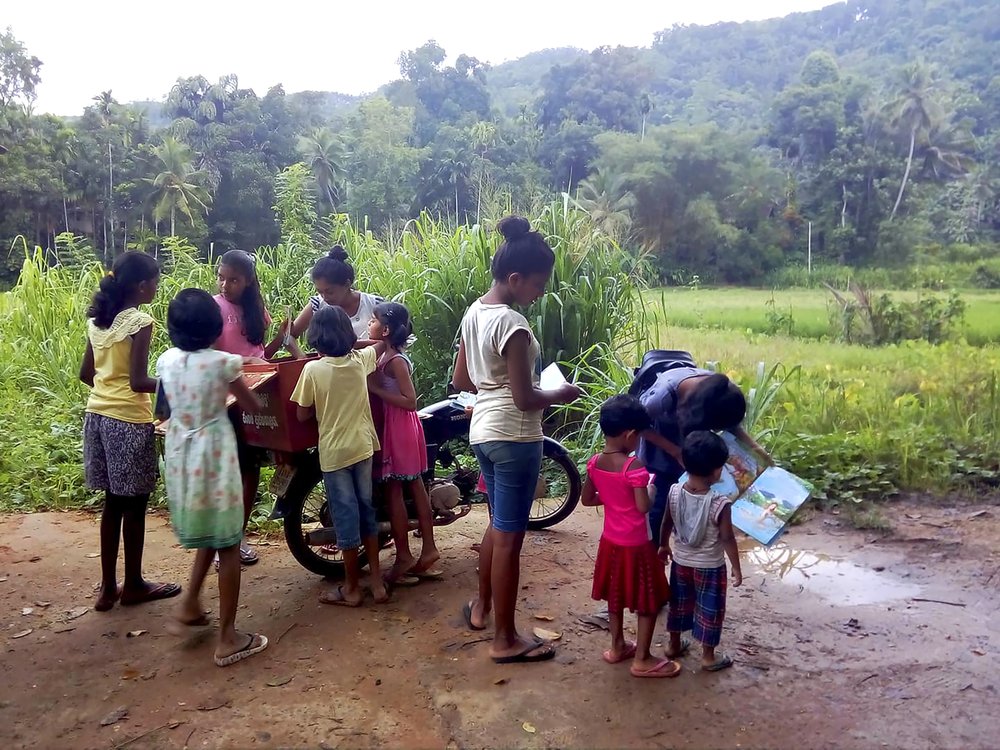Greeting card creates meaningful, unexpected friendship

When Hallmark announced they were sending free greeting cards during the pandemic, Amy Baird knew exactly who to send hers to. Alongside a road in Spanish Fork, Utah blooms beautiful tulips every spring, and Baird was determined to discover who put in the effort to plant those flowers. She was able to track down Marjan Martin Curtis, a 79 year-old widow who was in need of some compassion during the pandemic.
Curtis is fighting stage four cancer, and during the pandemic she is unable to see much of her children or grandkids. When she read the card Baird wrote to her, she was filled with warmth.
“My heart just warmed up,” Curtis told The Associated Press. “It almost brought tears to my eyes. It was almost like she knew I needed human contact because I was so isolated and so alone. And then I got this card and I thought, ‘There are people out there that care, so don’t give up.’”
Curtis began planting her tulips as a way to remember her home country of the Netherlands that she fled during WWII. After receiving the letter from Baird they quickly became pen pals, and after taking the proper precautions were able to meet in person. Both Curtis and Baird cherish the friendship they made and were grateful for the unexpected cheer.
Tweet turns into a hub for donations
When Andy Larsen found his Spongebob Squarepants childhood piggy bank and other bags of coins, he counted it up and found he had about $165. Larsen, a sports reporter for the Salt Lake Tribune, took up coronavirus coverage when sports shut down. From his experience, he knew some families needed that money more than he did, so he decided to tweet that anyone who needed the money could DM him. Without provocation, one person matched the amount and then another and another. Within five days over $50,000 was sent to Larsen for him to donate to people in need, without Larsen asking for a single penny.
Larsen and those who donated felt they were part of something unexpected and meaningful. Larsen made a spreadsheet of the donations received. So far the money has gone to people out of work from the pandemic, unable to pay for Thanksgiving, or struggling to pay their water bill. The majority of the donations were local, but some of the proceeds went to those who reached out to Larsen on Twitter.
For those involved, it felt like a nice way to stay connected and do something good despite the distance from the pandemic. And for Larsen, it was nice to do something bigger than himself. “I thought I was permanently just bitter, the classic embittered journalist,” he told The Associated Press. “And now I’m not for a little bit. And that’s nice.” You can find updates on Larsen’s donation efforts on his Twitter.
Mobile library provides books to those in need

Mahinda Dasanayaka doesn’t use his leisure time to sit back and read a good book; he uses it to give good books to those in need. With a large steel box of books attached to the front of his bike, Dasanayaka runs a mobile library to provide underprivileged children with books to encourage literacy.
The initiative is funded by Dasanayaka because of his passion for the project, not his wealth. About a quarter of his monthly income of $108 goes toward his mobile library. On weekdays he works as a child protection officer for the Sri Lankan government, and on weekends he rides his motorbike to rural villages and gives out books. Dasanyaka started the initiative, “Book and Me,” in 2017 and has travelled to 20 villages in his local region of Kegalle. He has even visited villages 211 miles away from his home to expand the program.
Not only does Dasanyaka run his mobile library, he set up library outposts outside of intersections of villages for adults and children alike to take a book and leave a book. He also conducts reading discussion groups to discuss books and authors, hoping to spark interest in learning beyond the childrens’ exam-centered learning. “My only happiness is to see that children read books, and I would be delighted to hear the kids say that books helped them to change their lives,” he told The Associated Press. “And that’s my ultimate happiness.”




